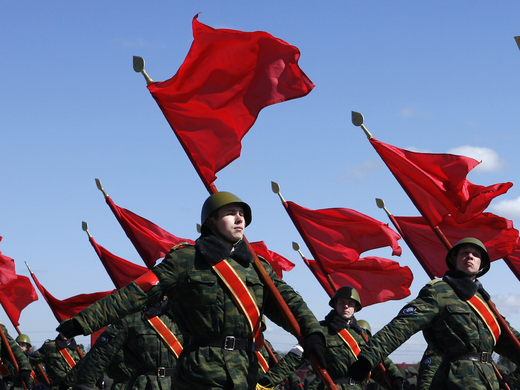Greece is broke and led by a fiercely socialist prime minister. Canada can borrow for 50 years at less than 3 percent and has been led by a staunch conservative for a decade.
Which country spends more on its military? Easy answer, given that it is so obviously a trick question. Greece is one of only five of the North Atlantic Treaty Organization's 28 members that is expected to spend at least 2 percent of gross domestic product on defense in 2015. That is remarkable. Considering all that Greece has been through it recent years, it also strikes some as absurd.
But not NATO Secretary General Jens Stoltenberg. He has praised Greece for its commitment to a spending goal that so many others ignore. Canadian Prime Minister Stephen Harper's bellicosity over Russia is undermined by a relatively small military budget: Canada spends 1 percent of GDP on defense, one of the lowest levels in NATO. That choice — to be a free rider when it comes to international security — helped Harper balance the federal budget earlier than expected, an accomplishment that he will hold up as a feat worthy of re-election when he faces voters in October.
Military spending clearly is a more sensitive political subject in Greece than in Canada. There are reasons for that, notably the country’s troubled history with Turkey. But with Greece on the verge of default, and its creditors intent on forcing Athens to accept serious concessions, some observers began to ask why so little emphasis has been placed on the Greek military. “What depresses us is how little attention has been paid to one major area of Greek government spending that seems ripe for the ax: defense spending,” Benn Steill, director of international economics at the Council on Foreign Relations, and Dinah Walker wrote this week.
The Guardian newspaper also raised the issue. The fight between Greece and the troika of institutions from which it needs money — the European Commission, the European Central Bank and the International Monetary Fund — appeared to hinge to a large extent on Greek Prime Minister Alexis Tsipras’s reluctance to overhaul his country’s pension system. With so little discussion of Greece’s military budget, it creates the impression that negotiators — on both sides — value guns more than pensions.
“With Greece sliding towards default and economic chaos, such silence is indefensible,” Steill and Walker wrote.
To be sure, Greece faces a unique security situation. For example, the Turkish parliament declared in 1995 that any attempt by Greece to extend its territorial waters would be seen as an act of war. The former Yugoslav Republic of Macedonia may be desirous of Greek territory. Greece also is one of the favourite landing spots for the waves of migrants seeking refuge in Europe. No country in such circumstances would gut its army. Yet those who favour a robust military probably feel that is exactly what Greece has done in recent years. Greece's defense budget averaged more than 6 percent of GDP in the 1980s, almost 4 percent of GDP in the 1990s, and 3 percent of GDP between 2000 and 2010 (PDF).
From this distance, it is difficult to see how Turkey — a NATO ally — justifies an outsized defense budget. Even if the threat is real, surely the United States and other European allies would keep it from taking advantage of Greece’s weakened position. The notion that Greece is obliged to spend on defense because of its international commitments is undermined by the fact that Canada and so many other NATO countries clearly feel no such obligation.
At the very least, a review of Greece’s military needs should be incorporated in a broader overhaul of the government’s spending program. The absence of a thorough explanation for why Greece should be among the world’s biggest per capita military spenders gives rise to other explanations that cast Athens and other European capitals in a poor light. Nick Malkoutzis at the MacroPolis blog explains Tsipras's reluctance to cut defense spending as necessary to placate not only his coalition partner, the nationalist Independent Greeks party, but also the generals and the chiefs of police. Steill and others point out that Greece buys most of its military gear from Germany and France.


